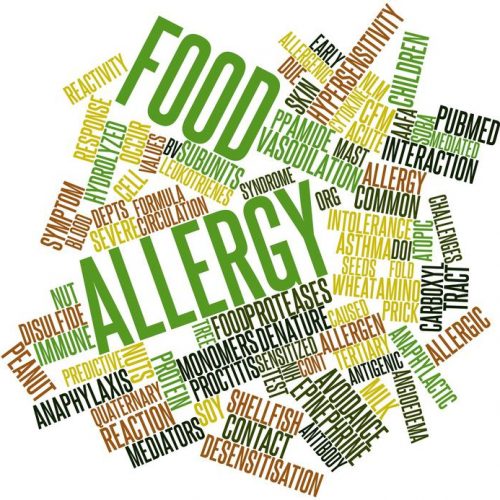By the Calorie Control Editorial Team
Phenylketonuria
Phenylketonuria, commonly known as PKU, is a rare inherited disorder that causes elevated levels of the amino acid phenylalanine in the blood. The buildup of phenylalanine is due to an inability of the liver to produce enough of the specific enzyme needed to metabolize phenylalanine after it is ingested. Excess phenylalanine is toxic to the cells of the nervous system and can result in cognitive, behavioral and psychiatric disorders in people with untreated PKU.
Early diagnosis of PKU is critical to prevent the irreversible mental retardation and other developmental problems associated with this disease, so screening of all infants for PKU within two weeks after birth is recommended in order to begin treatment with a phenylalanine-restricted diet. The incidence of PKU varies around the world and among different ethnic groups, with the highest incidence seen in Turkey (1:2600) the lowest in Finland (1:200,000) and Japan (1:125,000). The incidence of PKU in the United States is 1:15,000 births.
PKU Diagnosis Requires Phenylalanine Monitoring and Diet Modifications
The richest sources of phenylalanine in the diet are foods high in protein, such as meat, poultry, fish, eggs, milk, nuts and beans. It is found in smaller amounts in grains, vegetables and fruits. Phenylalanine is also found in aspartame, where it makes up 50 percent of its weight, however, the amount of phenylalanine ingested from aspartame is much lower than that found in foods.
As soon as PKU disorder is diagnosed in infants, an individually prescribed “PKU Diet” is required to maintain low levels of phenylalanine in the blood and reduce the progression of brain damage, including the use of a special infant formula free of phenylalanine for infants instead of breast milk. As the infant progresses to eating a mixed diet, the amount of phenylalanine in the food must be monitored and modified to meet changing nutritional needs for growth and development throughout childhood and then continued in adulthood for life.
Nutrition Labels Include Phenylalanine Statement
Since phenylalanine is one of the two amino acids that make up aspartame, the U. S. Food and Drug Administration (FDA) requires all foods and beverages containing aspartame to include the following statement on their labels: “Phenylketonurics: Contains Phenylalanine.” Products that may contain this statement include breath mints, carbonated and non-carbonated diet soft drinks; cereals; chewing gum, flavored syrups and ice cream toppings, frozen ice and ice cream novelties, fruit spreads, sugar-free gelatin; hard candies; powdered soft drink, ice tea and cocoa mixes; juice blends and juice drinks; maple syrup; meal replacements drinks and nutritional bars; pudding and mousse; sugar-free cookies; sugar-free ketchup; table-top sweeteners; vegetable drinks; and yogurts. Some medications, dietary supplements and other pharmaceutical products containing aspartame may also carry this statement.
The presence of the phenylalanine statement on aspartame-containing foods can be misinterpreted by consumers unaware of the need for this information by people suffering from PKU. Similar to the food allergen statements required on food labels by the FDA, this is not a warning that the named ingredients are unsafe, but rather, a way to inform those who are unable to tolerate certain ingredients that they are present in these foods.
Allergies and Other Sensitives
Anecdotal reports of allergic reactions to aspartame and of other common symptoms associated with its consumption have not been confirmed in the numerous studies conducted before its approval in 1981 nor in the ongoing post-marketing surveillance of this food additive. Butchko et al. reported in 1994, “Although a consumer may temporally associate consumption of an ingredient with the occurrence of a symptom, this does not necessarily indicate that a causal relationship exists.”
CDC Refutes Claims of Aspartame Side Effects
Some of the reported side effects from aspartame that have been tested include headaches, nausea, dizziness, nasal congestion, eczema, asthma, mood changes and tingling, but research to date has not confirmed these associations even when aspartame was provided in amounts far greater than people typically consume. A report by the Centers for Disease Control and Prevention (CDC) following a review of 517 consumer complaints related to aspartame stated the complaints “do not provide evidence of the existence of serious, widespread, adverse health consequences attendant to the use of aspartame.” The report further noted, “The majority of frequently reported symptoms were mild and are symptoms that are common in the general populace.”
Studies Show No Sensitivities
The overwhelming body of scientific evidence demonstrates that aspartame is safe for use by the general population not suffering from PKU, including healthy adults, children and adolescents; pregnant and lactating women; and people with diabetes or obesity. Anyone with a suspected reaction to aspartame should seek further medical evaluation to identify the underlying cause.




